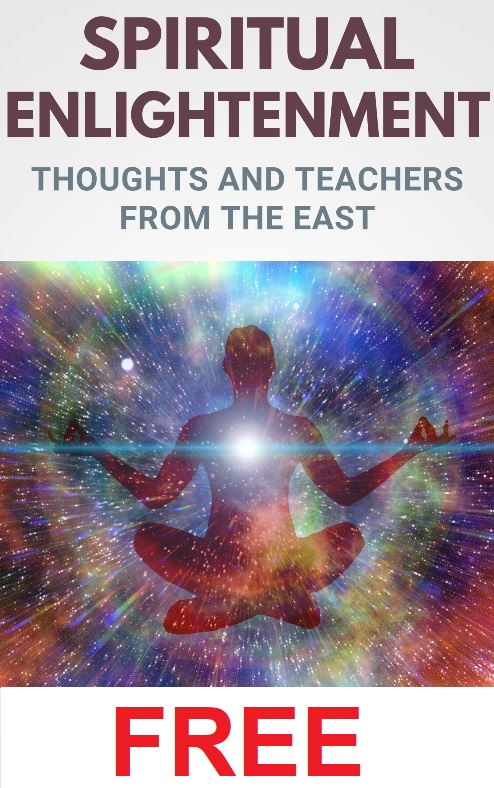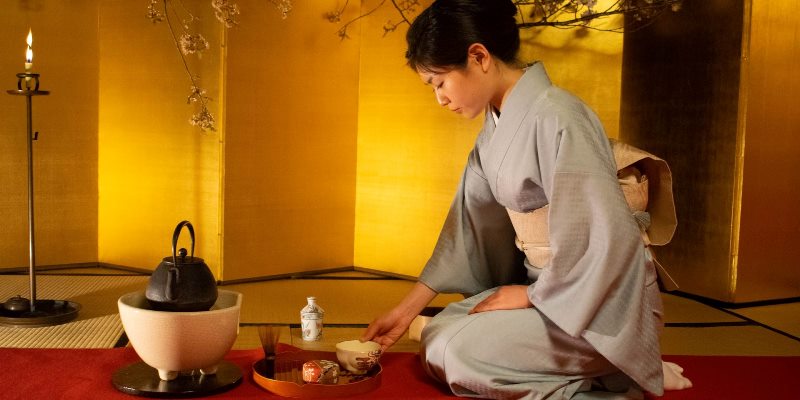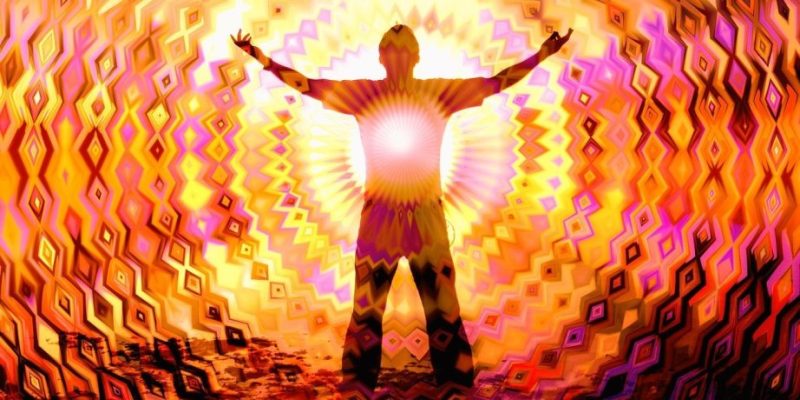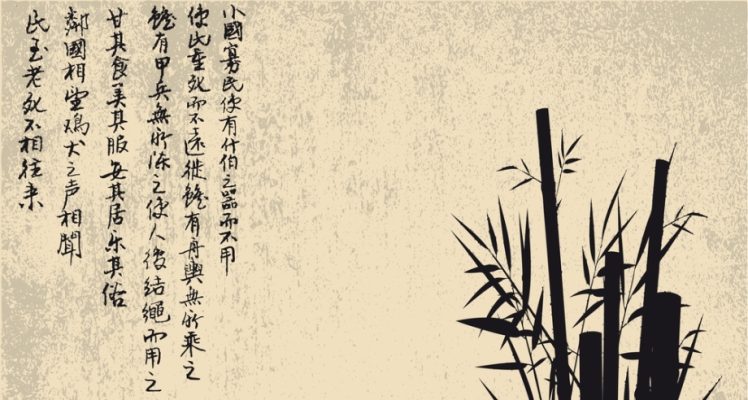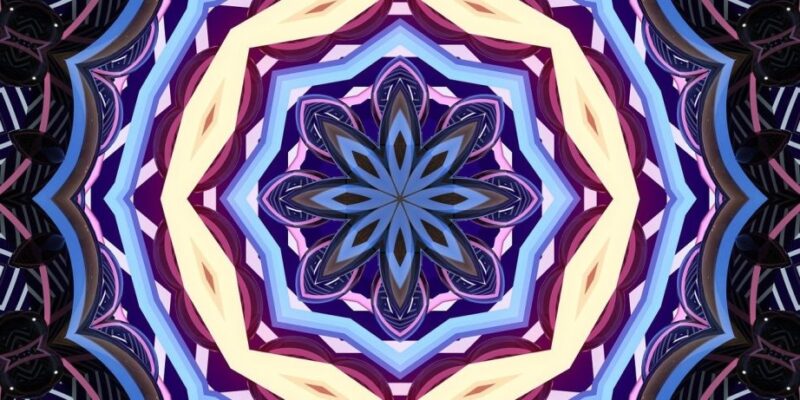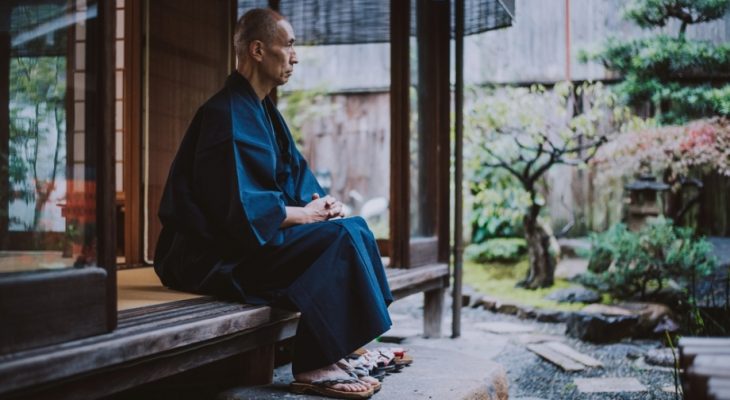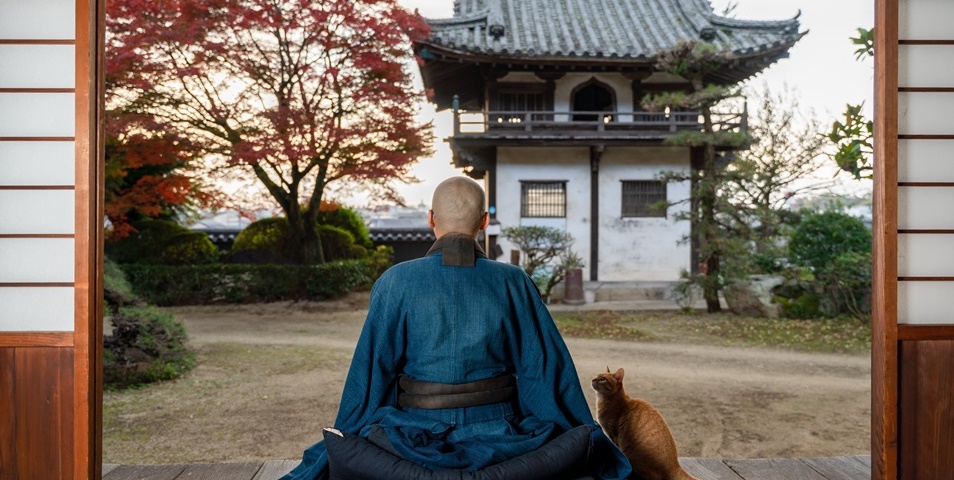
In 2014, I stumbled upon a short video titled A Teaching From Zen Master Jinen posted on YouTube by El-Branden Brazil. It’s a little questions and answer session — a kind of Satsang — between Jinen-san (a Japanese Zazen Master) and El-Branden.
Master Jinen and Zazen
I think in this video Jinen-san gives one of the most clear, direct pointers to what realization is, that is, the understanding of “what you are” or “who you are.” And I would like to add to that: “of how you are.”

See, I’ve been occupied with non-duality teachings since I was about 17, mostly through Advaita Vedanta (which I find very refreshing and useful as a life view), but Zen Buddhism and specifically Zazen Seated Meditation gives a kind of other touch to it. Actually, I’m not sure, but I feel that Zen Buddhism takes Vedanta — and in its tail Advaita Vedanta — a step further.
In fact, Advaita starts from out a (Jiva) Atman and Brahman duality (albeit it finally claims the two are intrinsically One), but Zen refutes the whole idea of a Self, may that be an eternal individual Self, or one that’s factually united with the Absolute Self, or any Self for that matter.
The “ultimate state” in Zen Buddhism is an impersonal state, a “situation” or “reality” where any talk about an “I” or “other,” “Universe,” “God,” or “the Divine” has lost its meaning.
But, let’s go back to the video. The session starts with the question: “What is truth?” Basically, I think the title of the video could might as well have been “What Is Truth” because that’s exactly what Zen Master Jinen is about to answer on in the remainder of the session.
Below then first the transcript of the video. After that, I will reflect and comment a bit on the questions and answers given.
Transcript of the Video
El-Branden: “What is truth?”
Jinen-san: “What is truth? Truth is the truth without truth. That is the truth. When we just say or mention about the truth it’s the truth in concept. So, there is something of a separation between the true truth and the truth in concept. [That things / This] you have to realize, at first.”
El-Branden: “So, how can we find the truth?”
Jinen-san: “Hmm, just face to whatever you just face to. It shows your truth. It shows … everything shows you, who you are, what the truth is. Just like (right) now. So, you can learn what the truth is with the things you face to. That’s enough. Otherwise, you never just meet the truth without any concept. There is everything, showing who you are, right now. That’s enough.”
El-Branden: “So there’s no separation?”

Jinen-san: “No separation at all. Although in concept, there is some separation between ourselves and circumstances or things. But in fact, there is no separation at all. That’s your truth. So once you just become the thing itself, then you can realize who you are, completely.”
El-Branden: “Why is finding realization so difficult?”
Jinen-san: “So difficult? Because, all the time, concept — the way of thinking — bothers you. It’s a kind of habit, we have to think everything, with [the / this] way thinking or thought. It bothers you. That’s the thing. You don’t know much about the things without [a] concept or this way of thinking. We just try to [… / find] everything with concept, with this way of thinking. That makes you a lot of trouble.”
El-Branden: “So, how can you break that habit of concept?”
Jinen-san: “Exactly as I told you. You just face to where the truth is, without that way of thinking. Then you can just throw … wash out your habit of thinking. Look[ing] at everything with the [right / real] thinking.”
El-Branden: “And meditation(s) … or sitting is the key?”
Jinen-san: “That’s the reason for meditation, but meditation, you might say … in the case you say meditation, is quite much different from what we just say, Zazen. Meditation … in [the] case of meditation, when you say it, it’s within concept. But, Zazen is out of concept. That’s quite much different. That’s where you have to do [the] Zazen or meditation. Although meditation and Zazen are the same, sitting, but way of doing is quite a lot different. So, once you just realize it, the meditation without thinking will be alright. That is Zazen.”
Comments and Reflection on the Video
In the video, El-Branden starts with the question “What is truth?” It becomes quickly obvious that it is about “the truth of the I,” that is, the truth of who we are.
It’s significant that Jinen-san answers with: “Truth is the truth without truth,” by which he makes clear that “the truth” is not something conceptual, but something “lived.” He actually claims that when we try to describe the truth, we create a separation — duality — where in reality there is none. As he says: “… it’s the truth in concept.”
So, how can we find the truth [about ourselves]? The answer to that is ” … just face to whatever you just face to. It shows your truth.” It means that Jinen-san claims that the truth is right here, in the present moment, around us. According to Jinen-san it’s enough to look at what we’re facing to [without conceptualizing about what we face or see]. That will do the job.
El-Branden than asks: “So there’s no separation?” Separation of what? Obviously, El-Branden wants to confirm that concepts or thinking about the truth is superfluous or even hindering to come to knowing or realizing the truth.
Jinen-san then basically repeats that in concept [in our way of thinking] there’s a separation, but in fact, there is no separation at all. He then continuous: “So once you just become the thing itself, then you can realize who you are, completely.” This is significant because it points to a kind of “merging” i.e. “becoming one” with what you face to — non-duality. By just steadily facing what you face to [without that way of thinking, without conceptualizing] you become “the thing itself.”
“But why is finding realization so difficult,” asks El-Branden. Jinen-san makes this point very clear: because of the habit of the mind to observe everything through the lens of conceptual thinking. We want to explain everything. It’s why we cannot see the truth about ourselves, which is just here and now, in our face.
But then, how to break that habit of concept? Well, says Jinen-san, by “just facing to where the truth is [here and now around you], without that way of thinking.” Of course, that’s easier said than done. And that’s why El-Branden immediately asks: “And meditation(s) … or sitting is the key?” It means that El-Branden asks for a method, a technique to break that habit of conceptualizing.
Jinen-san then makes clear that indeed meditation in the form of Zazen i.e. “just sitting” is the way to break the habit and the means to come to realizing the truth of who we are. But he stresses that thinking about meditation, that is, making meditation a concept is not Zazen. Or to quote Jinen-san’s words: ” … meditation, when you say it, it’s within concept. But, Zazen is out of concept.”

